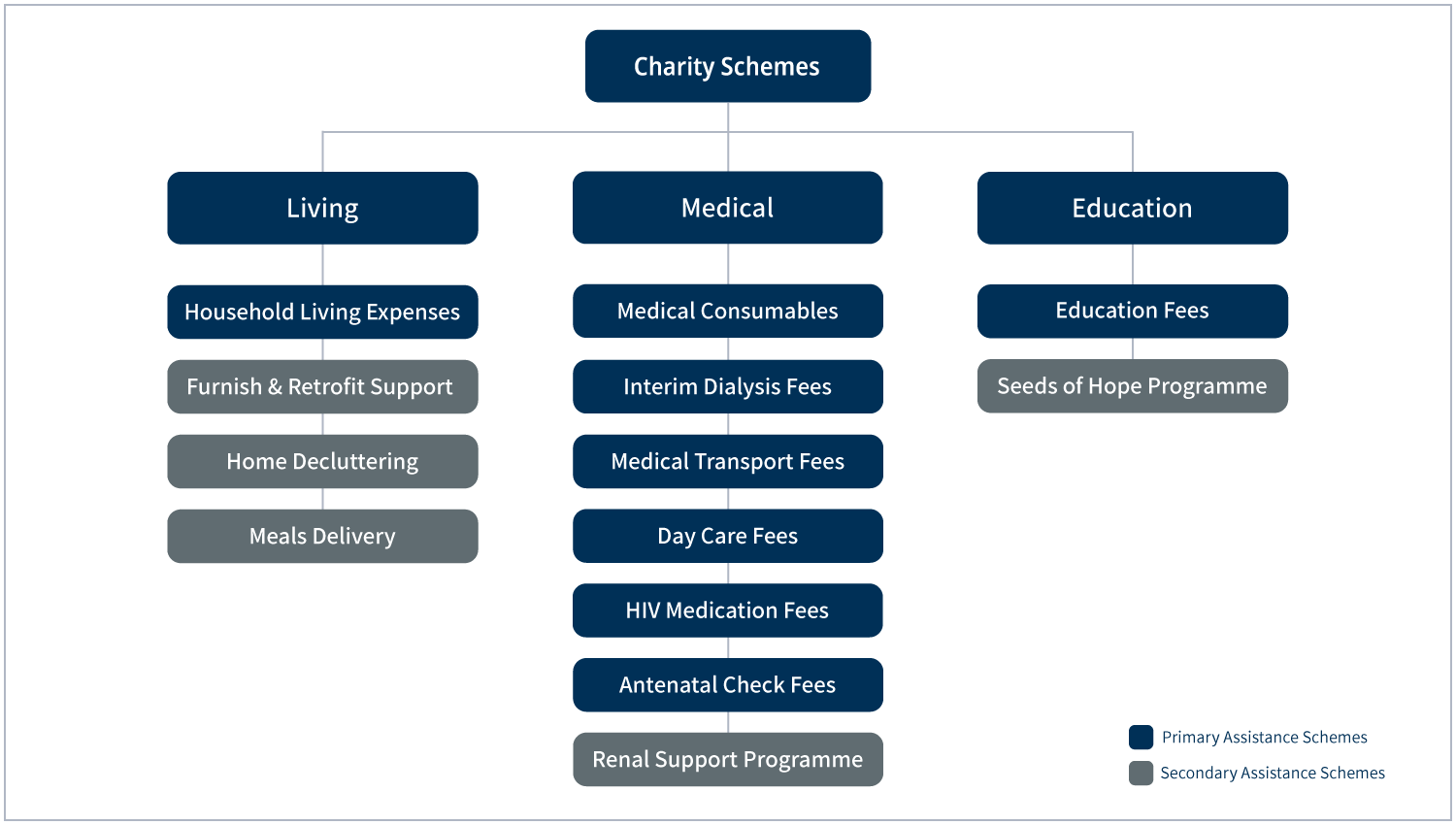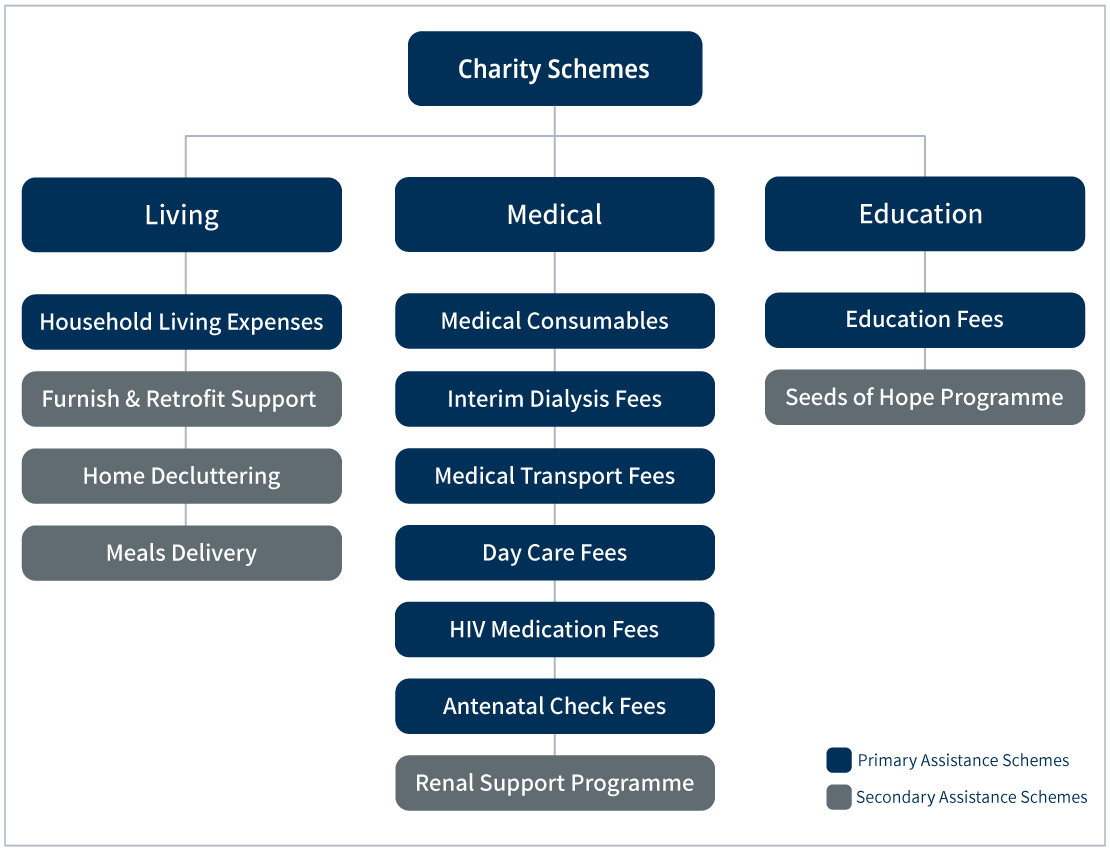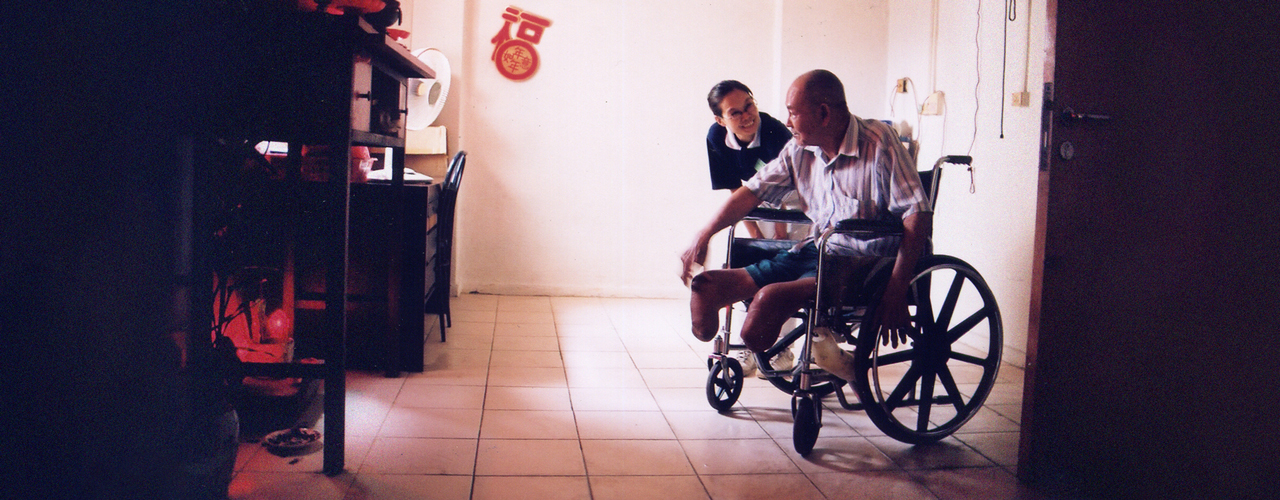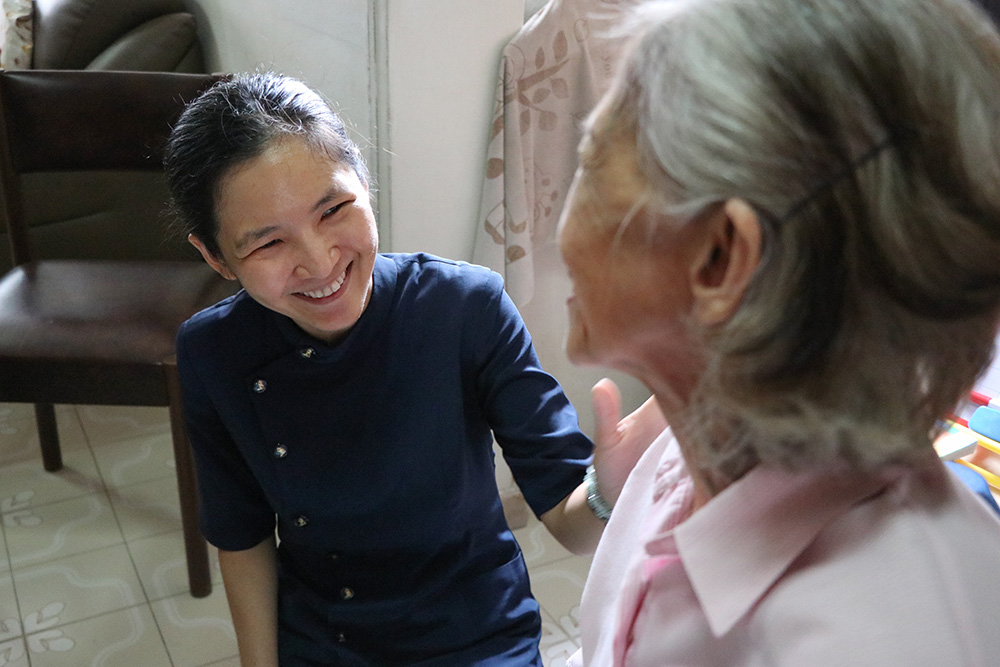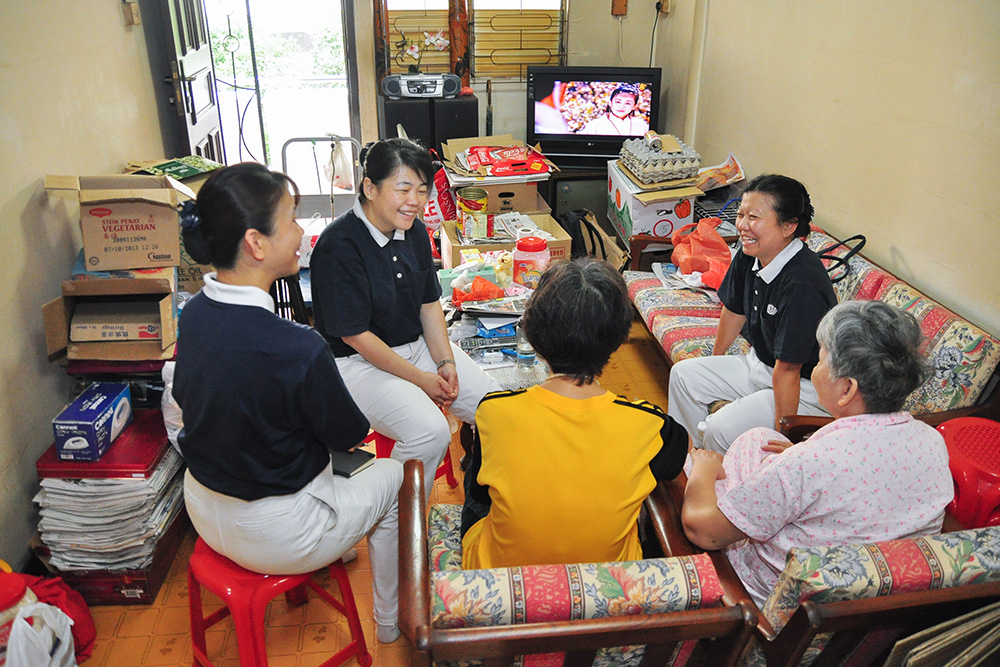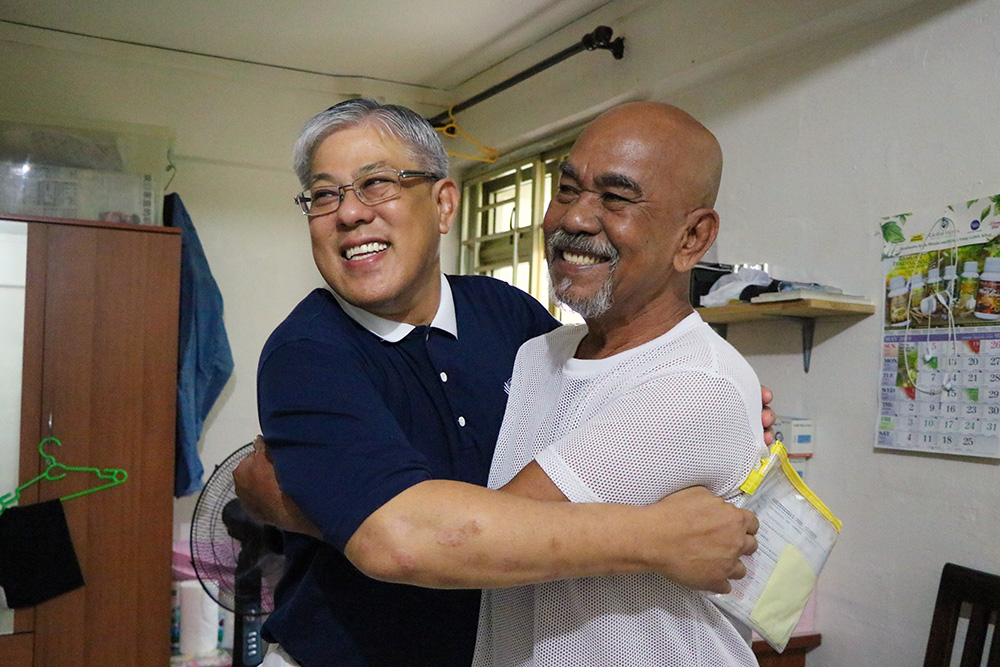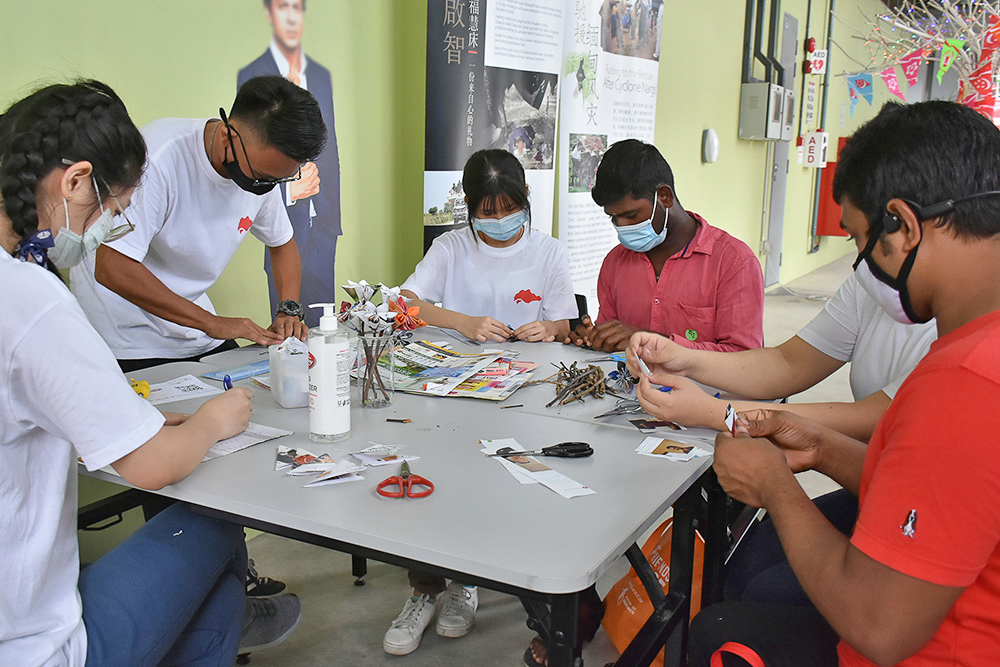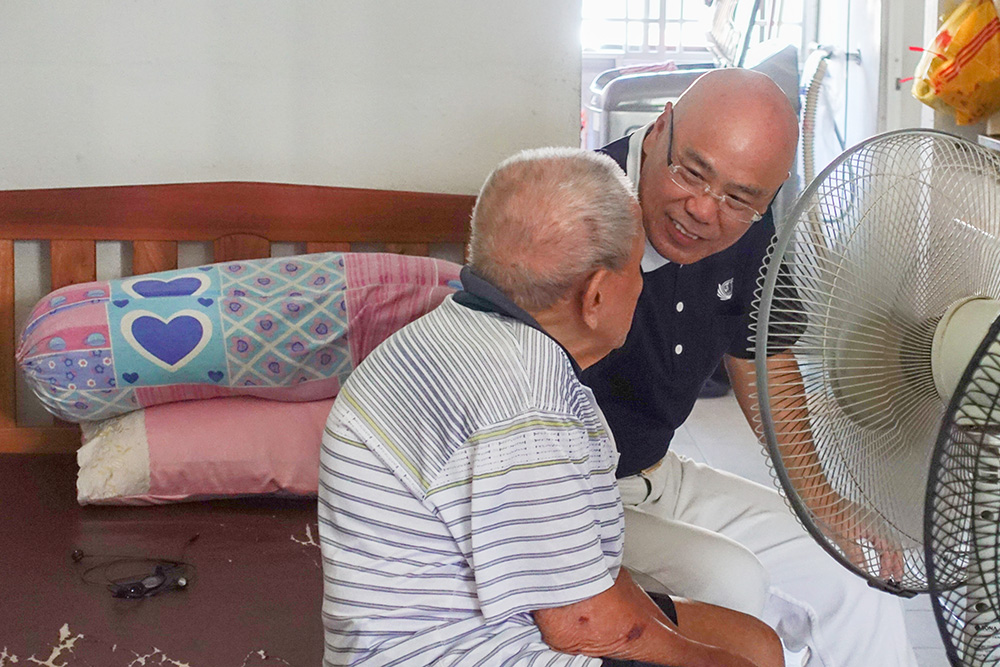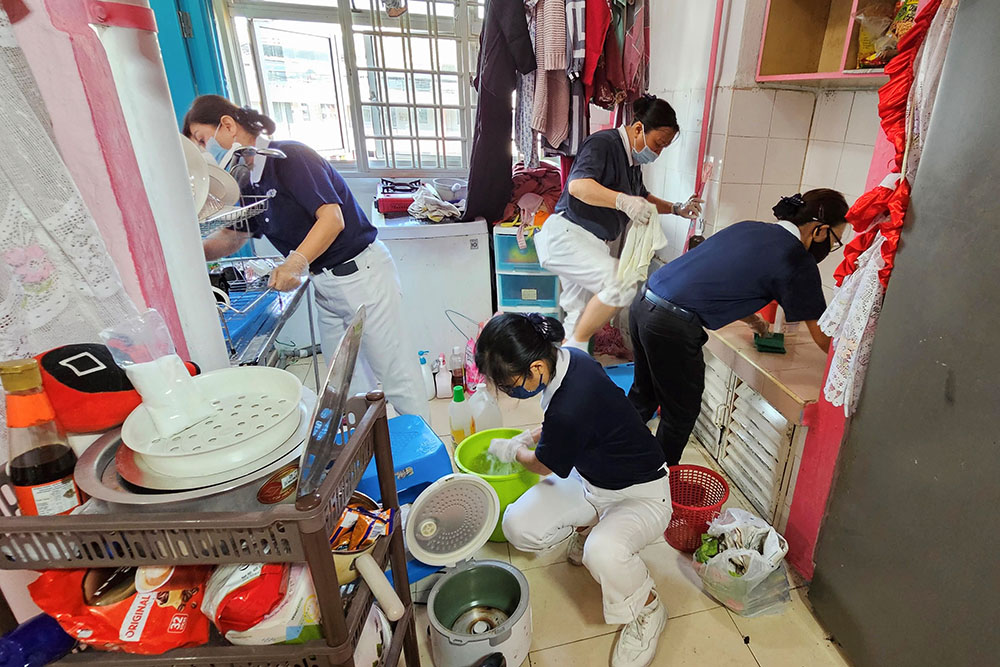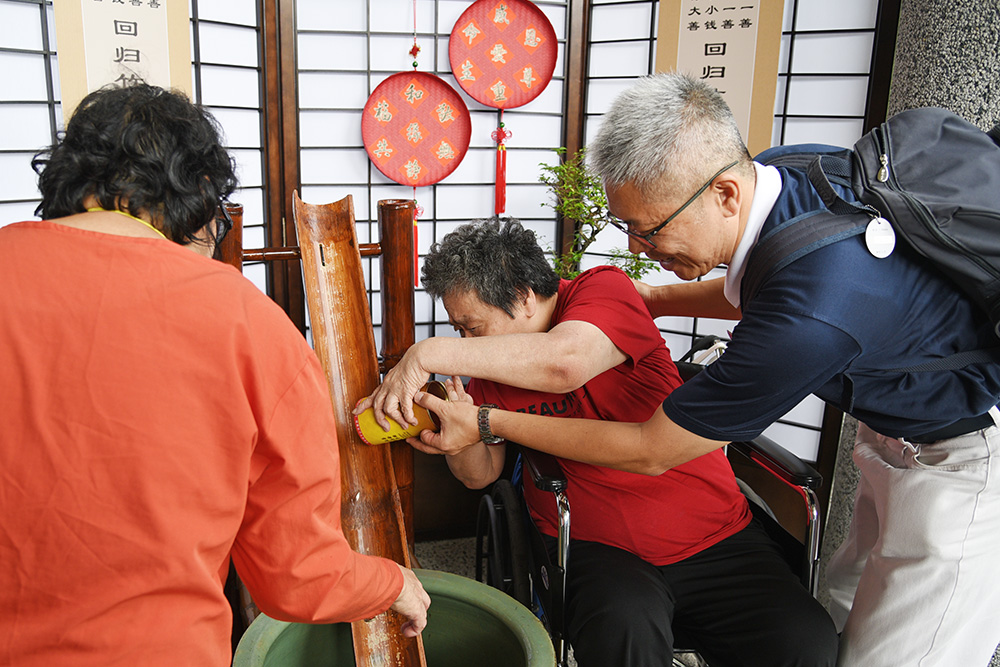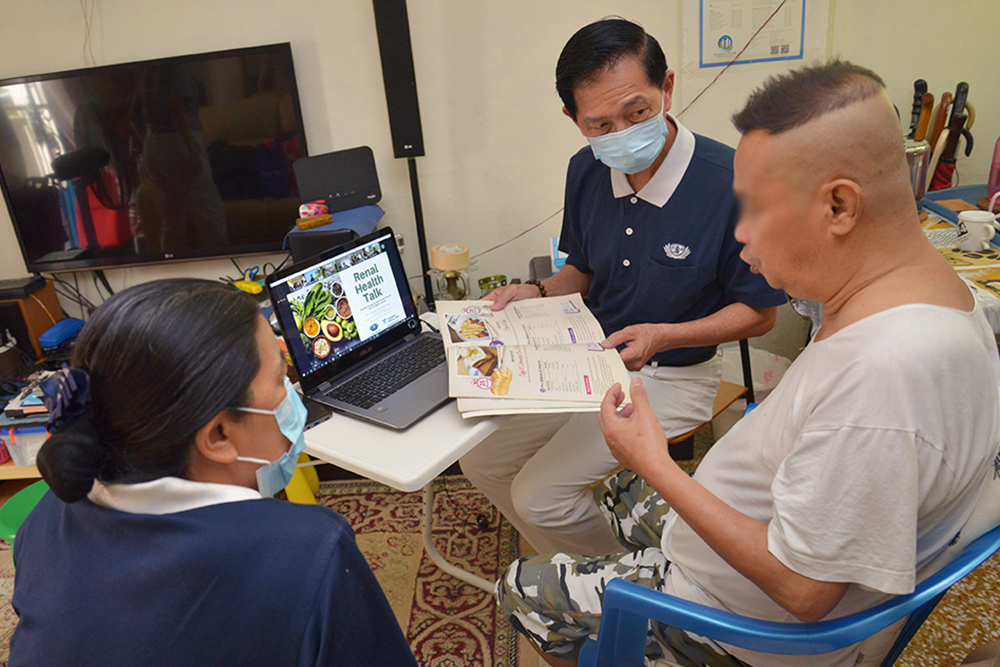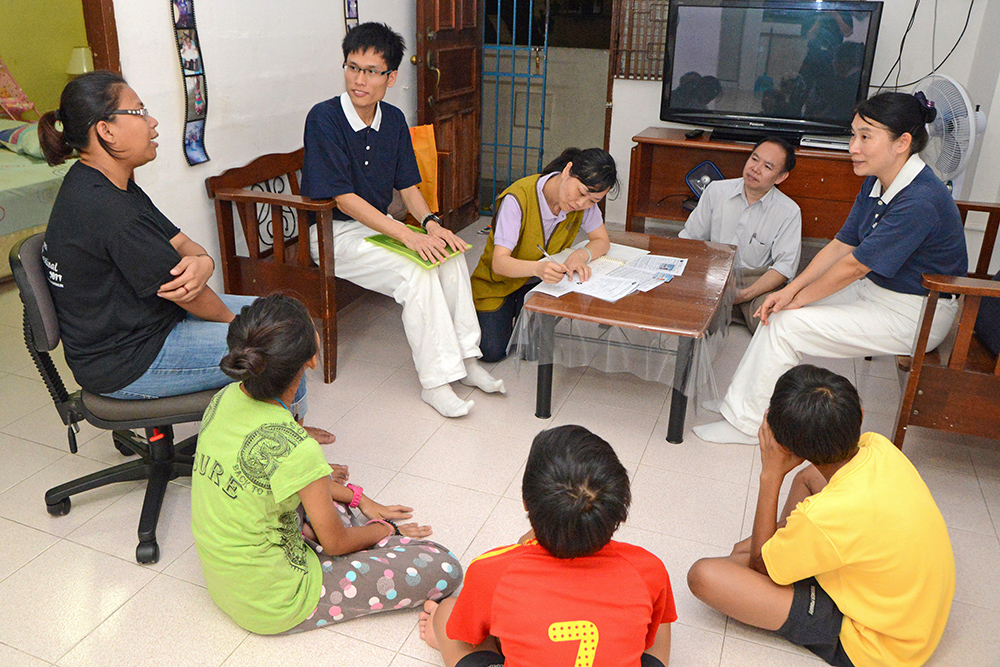Mission of Charity
Responding to the cries of the suffering with Great Love
Tzu Chi volunteers address the needy households they assist as ‘Households of Gratitude’. This is not about wanting the care recipients to thank Tzu Chi for its help, but rather the volunteers are grateful to the needy for allowing them to witness poverty and illness in life. It helps to remind them that impermanence is a reality in life, and thus, they learn to be content and count their blessings. In the process of giving, it is equally important to thank the care recipient, only then are we truly sincere in caring for the suffering.”
Master Cheng Yen
Providing direct aid to those in need
Charity is the foundation of Tzu Chi’s Missions. In 1966, the year after Taiwan experienced 20 years of poverty and received 15 years of US aid after the Second World War, Dharma Master Shih Cheng Yen founded Tzu Chi from scratch in Hualien, a town located in the impoverished and remote east coast of Taiwan. Together with her monastic disciples and a group of housewives, she laid the groundwork for helping the poor and relieving suffering.
In the early days, Master Cheng Yen personally led Tzu Chi volunteers into the dark corners of society. During the course of visiting the homes of the impoverished, they witnessed the suffering and hardships of the sick and the poor and provided them with empathetic care and much-needed aid. Being the first to reach out to the needy and committed to helping them until the end, Tzu Chi volunteers accompany and care for the care recipients until they become independent or until the end of their life. Such spirit of compassionate Great Love has become the hallmark of Tzu Chi’s Mission of Charity.
When Tzu Chi reached the shore of Singapore, it was registered as Tzu-Chi Foundation (Singapore). The Foundation has since developed and established a number of charitable programmes in multi-racial Singapore to address the most pressing societal needs. These programmes serve to fill in the gaps where existing government resources may be lacking and meet the needs of those who are marginalised in society, regardless of their race, language or religion.
Since 1987, Tzu Chi has been providing emergency assistance and long-term aid to needy households. During which, our volunteers have been making regular visits to nursing homes to give care and emotional support to the sick and lonely elderly. In addition, the Foundation also forged partnerships with public institutions, such as schools, hospitals, and social service agencies to serve the needs of referral cases.
The changing times have brought about new challenges to Tzu Chi’s charity work, spurring the need for the Foundation to keep a close pulse on evolving societal needs and to recognise hidden needs in the dark recesses of society. In 1998, we were the very few social service agencies that provided subsidies for AIDS medications and mobilised our volunteers to visit them regularly to offer emotional care and support. The subsidy for AIDS medication continued until January 2021 when it ceased due to the dwindling of such demand. From 1998 to 2021, the programme benefitted 1739 AIDS patients.
The effects of the global financial crisis landed on Singapore's shores in 2008, pushing many families over the edge into dire financial straits. In the following year, Tzu Chi set up the Seeds of Hope Financial Assistance Scheme to provide meal and transportation allowances to students from low-income families. Over the years, the assistance scheme has evolved to meet the changing demands of families with school-going children.
Upholding its relief principles of timeliness, directness, priority, and respect, the various types of help are offered in accordance with the specific needs of each household and can be categorised into Living Assistance, Medical Assistance and Educational Assistance.
In the past, we only focused on inspiring the rich to help the poor, by calling on those who are financially able to help the impoverished. Now, we also work to guide the poor to do good, by sharing with them that in the process of receiving aid, they can also contribute their efforts to help others in need if they wish to. Thus, a continual cycle of kindness and charity is formed.”
Master Cheng Yen
Inspiring the rich to help the poor and guiding the poor to do good in return
The works of Tzu Chi’s Mission of Charity involve ongoing needs assessment, providing the required assistance, and ensuring long-term care for its care recipients. It is a rigorous process comprising an initial visit to assess the needs of the potential care recipient, a follow-up meeting to discuss each new case, and monthly care visits to the homes of confirmed care recipients by our volunteers.

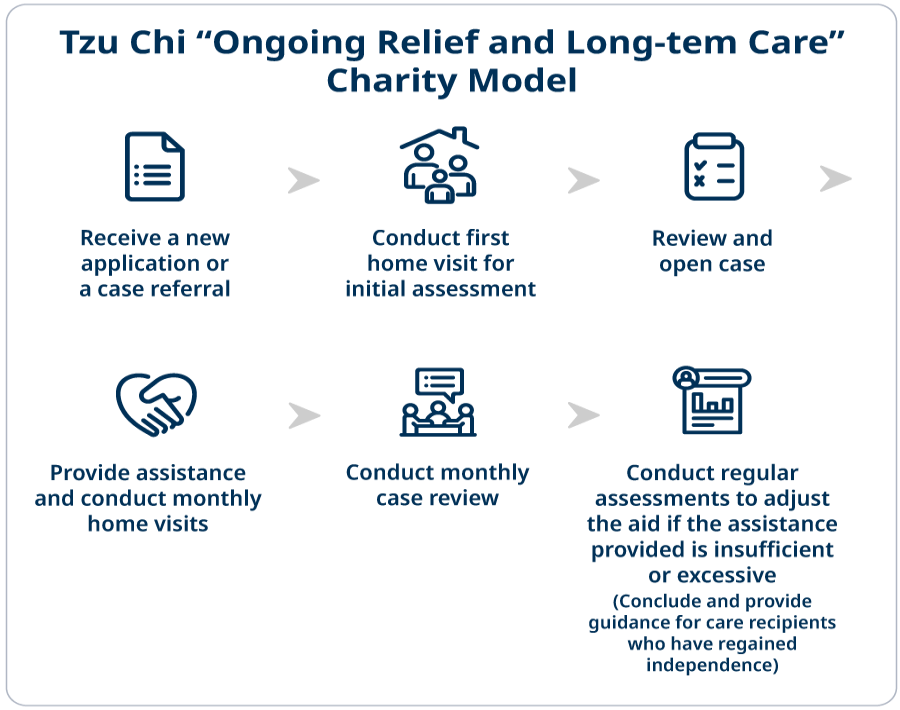
Besides making regular home visits, our volunteers also organise festive celebrations and invite care recipients and their family members to participate in the events. By providing care from the heart, we hope to improve the quality of life of our care recipients and help them get their lives back on track.
Our home visit volunteers, who are spread island-wide in every neighbourhood, are committed to Master Cheng Yen’s ideal of “equal compassion for all”. They prepare meals and distribute aid supplies to households and individuals in need, and help with cleaning up, repairing, and renovating homes, allowing the latter to feel the love and warmth of family. Touched by their loving and sincere efforts, many care recipients gradually opened up their hearts and built trusting relationships with the volunteers. Under the inspired guidance of the home visit teams, many of our care recipients have come to realise that true wealth comes from giving, and are happy to pay it forward to help others in need.
Stories of Love and Compassion
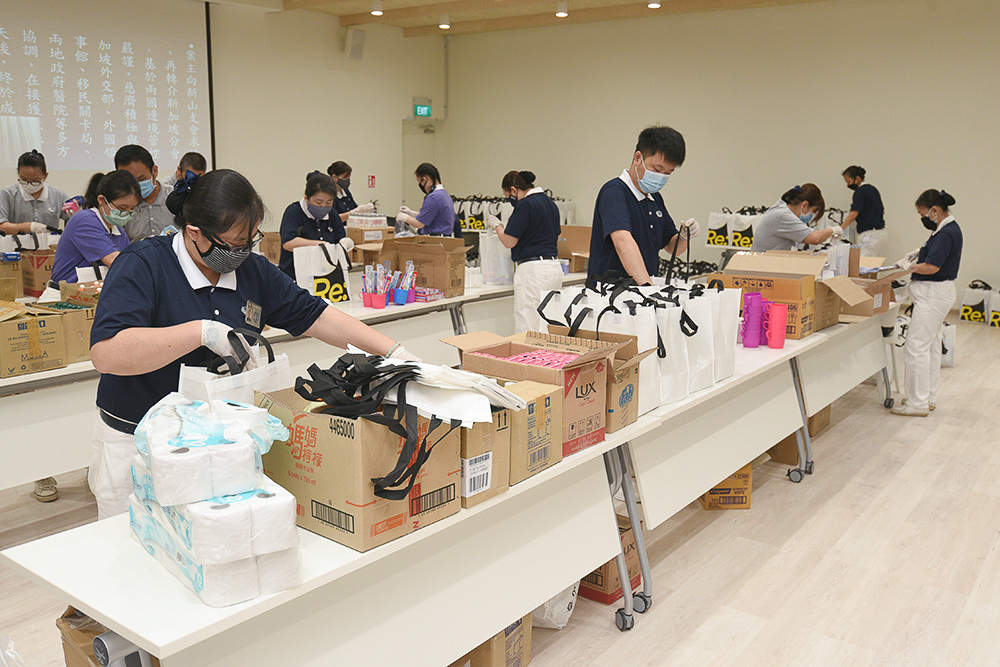
Sending Love and Warmth amid COVID-19
Since the first Singapore COVID-19 case in January 2020, the situation rapidly escalated into a major lockdown in April, leading to an extended period of pandemic conditions. To address the crisis, Tzu Chi established a special task force that implemented a Crisis Management Plan and Epidemic Relief Programme to enhance safety measures across various establishments and provide relief support to migrant workers, front liners, and over 700 care recipients.
The programme was executed in three phases to ensure the timely distribution of relief supplies and assistance. Given social distancing measures, weekly phone calls were made to monitor the well-being of more than 100 critically vulnerable households. Additionally, a survey was conducted to assess the needs of 550 care recipient households, enabling tailored support to be provided.
While most people could stay home to avoid infection, front liners were burdened with excessive workloads to keep essential services available to the public. Empathizing with the frontline workers, Tzu Chi volunteers went to community isolation facilities to distribute care packs to front liners as a token of gratitude. In 2020 and 2021, many of our volunteers were on the daily roster in 3 different community isolation facilities over 553 volunteer shifts to support the frontline workers by chatting with them and serving them tea and snacks.
Safeguarding the Mental Wellbeing of Migrant Workers
When COVID-19 started spreading in migrant workers dormitories, approximately 300,000 migrant workers were confined to their dormitories and had their movement restricted for a prolonged period to prevent a widespread of the virus in the community. Aware of the potential adverse outcome of such a measure, the Ministry of Manpower (MOM) was highly concerned about the mental well-being of the group.
In June and July 2021, Tzu Chi worked with the MOM to organise a series of online activities, which comprised mental health talks, pilates lessons, and poetry appreciation sessions, hoping to bring some relief to the dormitory residents. When the pandemic restrictions were lifted, together with MOM and five other Non-Governmental Organisations (NGOs), Tzu Chi jointly organised on-site carnivalesque events at Kranji Recreation Centre and Terusan Recreation Centre to bring joy and warmth to dormitory residents.
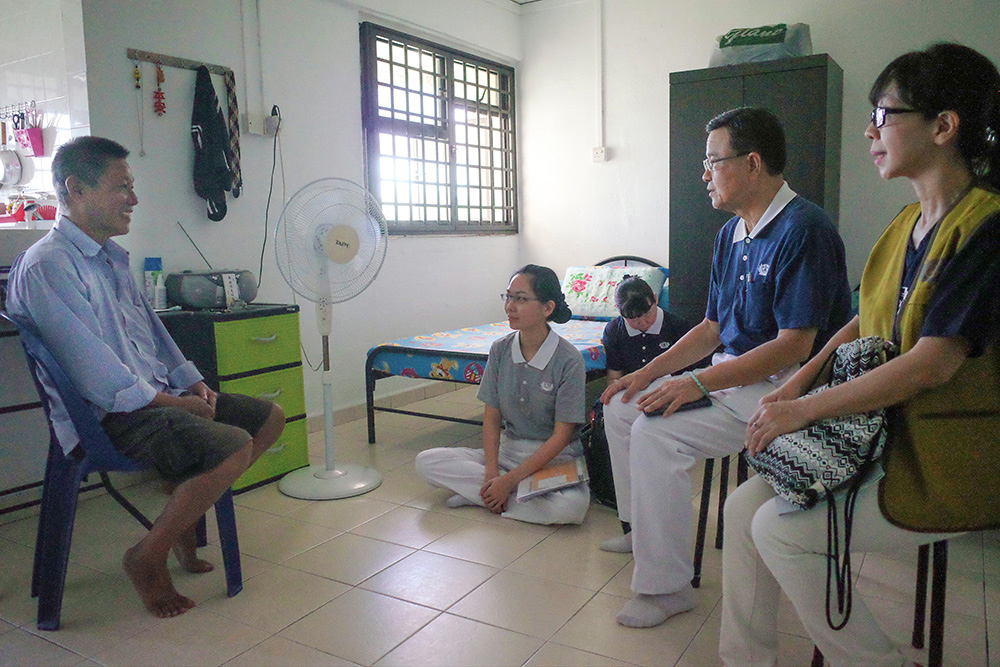
A Care Recipient who Quit Smoking and Drinking to Donate to Charity
Tzu Chi care recipient Tan Yew Hock was a heavy smoker and an alcoholic who suffered from high cholesterol, diabetes, depression and colon cancer for over 10 years. Due to such a health condition, Tan had to take 50 pills every day. Tan was also a bad-tempered man, which contributed to the breakdown of his family. He even spent some time living on the streets. Upset with himself and with life, Tan attempted suicide for three times in the hospital as he was overwhelmed by the stress.
Thankfully, Tzu Chi volunteers entered his life and started visiting him at his home. In the beginning, Tan appeared worried and gloomy during each visit and he spoke very little. Tan received some help and support from the volunteers but couldn’t quit his smoking and drinking habits at the beginning. The volunteers then shared with him Jing Si Aphorisms and gave him a Bamboo Coin Bank. After some time, Tan began filling up the Bamboo Coin Bank with savings each month, despite having insufficient money for himself. After three years of continuous care and companionship, Tan finally quit his bad habits and changed his temper.
Charity Schemes
Treating the needy and suffering as family and reaching out to them with compassion
Compassion and Wisdom in Action
Tzu Chi’s long-term mode of assistance has evolved with the advancement of society to become more diversified, allowing for flexibility in rendering help while ensuring effectiveness. It comprises assistance for living expenses, medical assistance, education grants, regular care visits, etc. The various types of assistance are provided in accordance with each household’s unique needs, which are determined based on quarterly needs assessments and monthly visits conducted by volunteers. This ensures a deep understanding of the needs of each care recipient, and the amount of aid given will be adjusted to meet these needs or terminated if the needs have been met by other sources.
Spiritual counselling and emotional care are the focus of the home visits. Each home visit team strives to follow Master Cheng Yen’s teaching on the importance of exercising both compassion and wisdom. The home visits are conducted by volunteers who have received the required basic training. With enthusiasm to help those in need, they provide emotional care as well as patient guidance to care recipients.
Some of the care beneficiaries are impoverished and sick, living a life of hardship and despair, alienated from friends and kin alike. Through the persistent effort of the home visit teams to establish rapport with them, they are finally able to let down their guards and allow the volunteers to clean up their cluttered homes, bathe them, give them haircuts, and even help them seek medical help, etc. Inspired and touched by the volunteers’ loving efforts, many care recipients are able to settle down despite their humble circumstances, develop gratitude and contentment, and further give of themselves to help others in need.
Tzu Chi’s aid relief can be categorised into Living Assistance, Medical Assistance and Educational Assistance and each of them is divided into primary and secondary assistance schemes.
The primary assistance scheme is set up to meet basic needs and relieve poverty, and it is open to the public. Whereas the secondary assistance scheme is only available for Tzu Chi’s existing care recipients to provide more holistic care and support to meet the diverse needs of different households. The aim of the scheme is to improve the overall quality of life of the care recipients and their family. Application is made through home visit volunteers who visit the care recipients monthly.
Primary Assistance Schemes:
- Meet basic needs
- Relieve poverty
- Open to the public
Secondary Assistance Schemes:
- Provide holistic care to meet the diverse needs of each household
- Improve living quality and assist care recipients to regain independence
- Open to existing care recipients only
